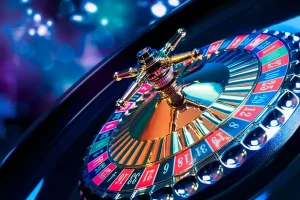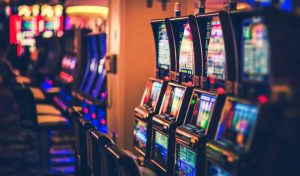
As poker players playing for pleasure, we are all fascinated, at least a bit, by numbers, percentages, and the rules of averages. It may just be more complicated than it seems, unless you already have the seven essential qualities to become a good player, as I will explain below. This article will try to draw up the typical winning player profile in the following statements. There’s no study to prove these thoughts, by the way. With the experience gained throughout evolution, veterans were able to develop skills to identify the right stuff needed to win at the game advises you to do the same. Even if you don’t have the following money, you can, of course, gain.
- Self-assurance. That consistency is essential when you’re at the table because usually, the best performers are people with better self-confidence. This is not what most people think, and it’s the same for other aspects of life. There’s nothing more substantial than practice to develop healthy self-confidence. The more scenarios you’ve previously encountered, the more you’re at home in making the right decisions. Therefore, it is necessary to continually practice and strengthen your knowledge to build this self-confidence that will quickly lead you to the poker tables in the face of difficult situations.
- Discipline. A good player will handle their bankroll. He rarely works at levels that could harm the stability of his bankroll. He is cautious and waits until he has the bankroll he wants before jumping to a higher limit. He has to be careful in handling his money and avoid taking unnecessary risks. He’s always strict when it comes to managing his feelings and doesn’t let an unfortunate sequence’s anger or a strong one’s happiness change his ways. Altogether, he appears down-to-earth, capable of managing his gains or losses without altering his mood. He also has no remorse ending a session when nothing works appropriately for him, without persisting in restoring his loses. This is all about self-control, and the books do not teach the part. Understanding how to manage oneself is a challenge for a team.
- Mental concentration. The disparity between a player who loses a little and another that wins a lot is often attributed to their ability to pay attention to details. Focusing on the way your opponents play is essential: it will help you to recognize their vulnerabilities and to take advantage of them in the next confrontations. Most of the time, small quantities, often 1 or 2 big blinds that you can easily steal from! As wise men say, you make millions of dollars! So you have to stay focused at all times to take advantage of those opportunities.
- Mathematical competencies. Most people always come back on the game’s statistical aspect; we can’t disregard it, sadly. Accept it quickly, and do the utmost to assimilate it. Many participants are more at home with arithmetic than others, but all have the same implicit odds. The one who knows them wins the edge over those who don’t know them. A ton of information on this subject is available; all you have to do is make an effort to find and read them! Hard estimates for each hand are not required. Sometimes, you’ll find that guesswork abilities are enough.

- Don’t sacrifice your chance to win. You have to put a lot of effort into being a good pokergalaxy player and spend a lot of time. If you want to play 2 or 3 hours a week to become a great player, the process will be longer than if you spend more time, it is logical. Don’t give up; above all, when you encounter bad sequences and always keep your head up. You have to persevere in terms of time and effort to improve. A self-learner is better at managing than someone who wants every secret to being revealed. What you have to do then is continuously talk about your tactics, your rivals, and find ways of improving.
- Understand the reason for the chance. Luck is part and parcel of poker. This is not a fatality, and it is a reality. So how can one do away with its impact? The key is understanding and accepting poker is a game you are playing that has a long-term strategic approach. We both lost in a session where our side had 90 percent chances of winning and eventually crashed. If you’re in such a scenario, you’re going to win 90% of the time, and you’re going to lose a slight 10% of the time. If you’re just worried about single failure cases, you’re not talking about the long term. You overlook that finally wins would vigorously compensate such tragic defeats. For poker, the effect of chance is only short-term.
- Stick to it. The best players in poker are consistent and start playing when they feel ready to fight their A Game. In a nutshell, to be consistent is this: only play if you feel good. You should only play if you feel like a warrior, mentally ready, focused, self-confident, fresh, and disciplined, coming into the battlefield. You must be in top shape in a few words. You have to control the thoughts and your emotions as well. Comprehend how to avoid adverse reactions when you’re suffering bad beats. Once again, the goal is to play only if you are in a good mood and can quickly rebound whatever the circumstances are. Over time and hard work, all those things can be changed. You’ve got to be able to stand back and assess yourself first. There’s always room for change with poker. Stratégically or emotionally, either. You have to do this again and again. Remains to see how you can manage your emotions during long downswings. From a veteran’s point of view, this is the toughest aspect of the life of a professional poker player.






